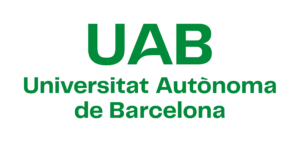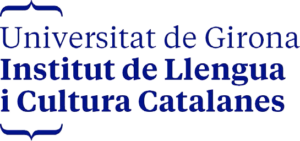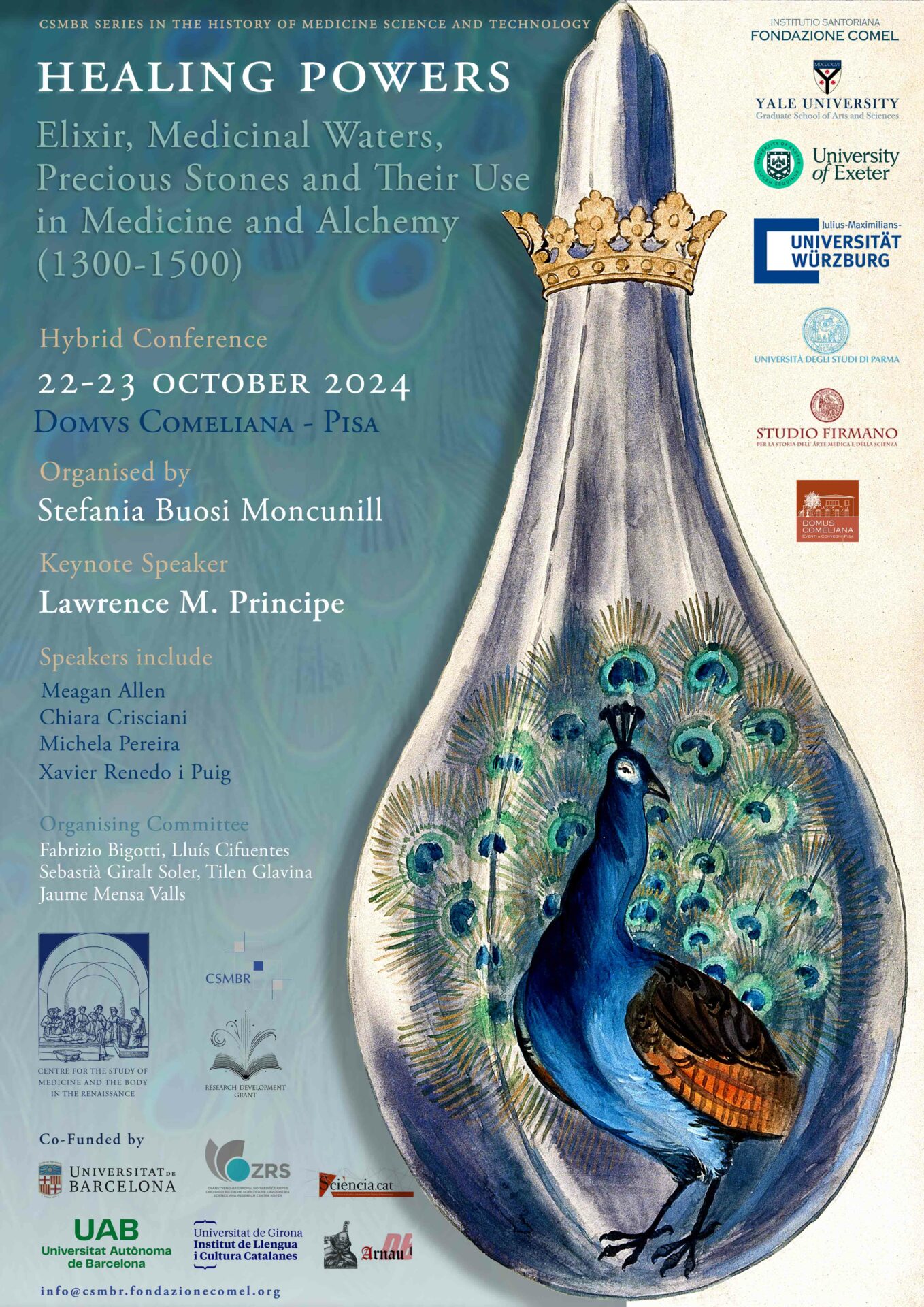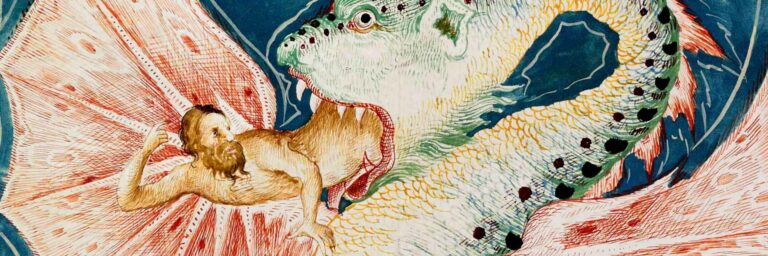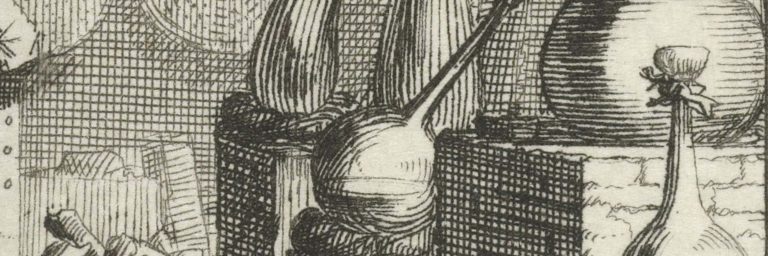Healing Powers
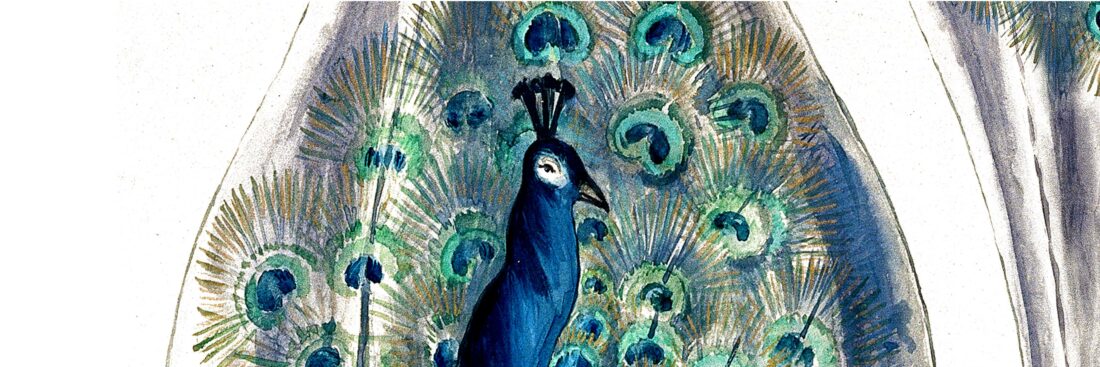
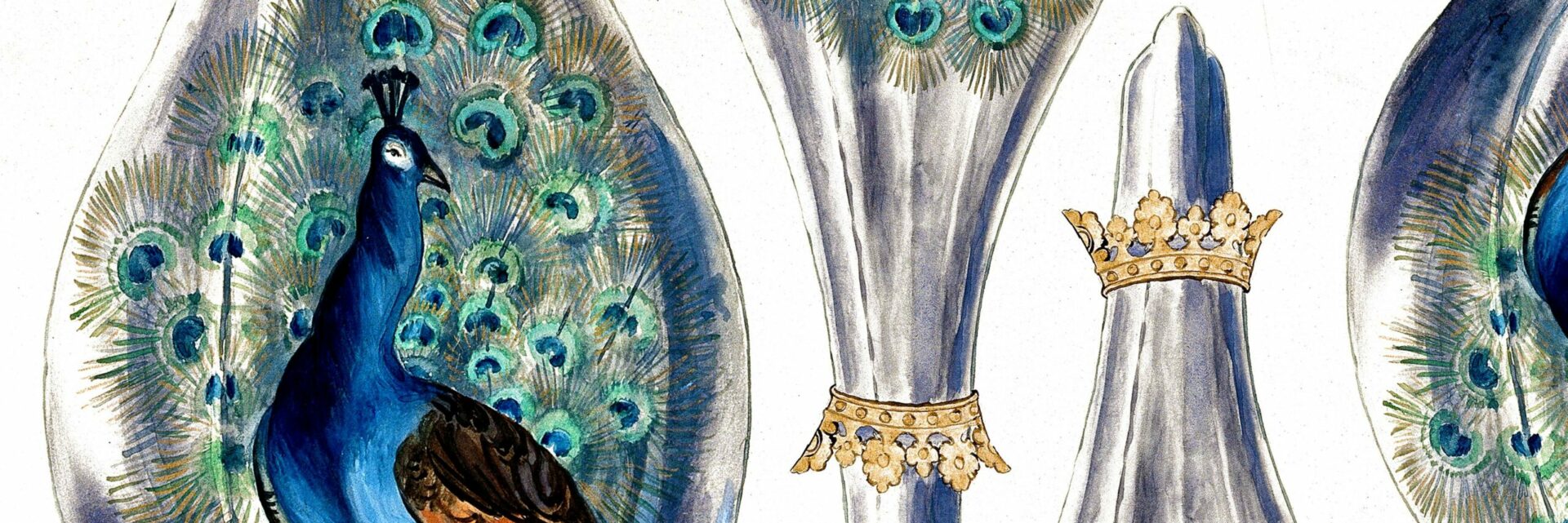
Healing Powers
Elixir, Medicinal Waters, Precious Stones and their Use in Medicine and Alchemy (1300-1500)
22-23 October 2024
Organised by
Stefania Buosi Moncunill
Keynote Speaker
Lawrence M. Principe
Speakers Include
Meagan Allen, Chiara Crisciani, Michela Pereira, Xavier Renedo i Puig
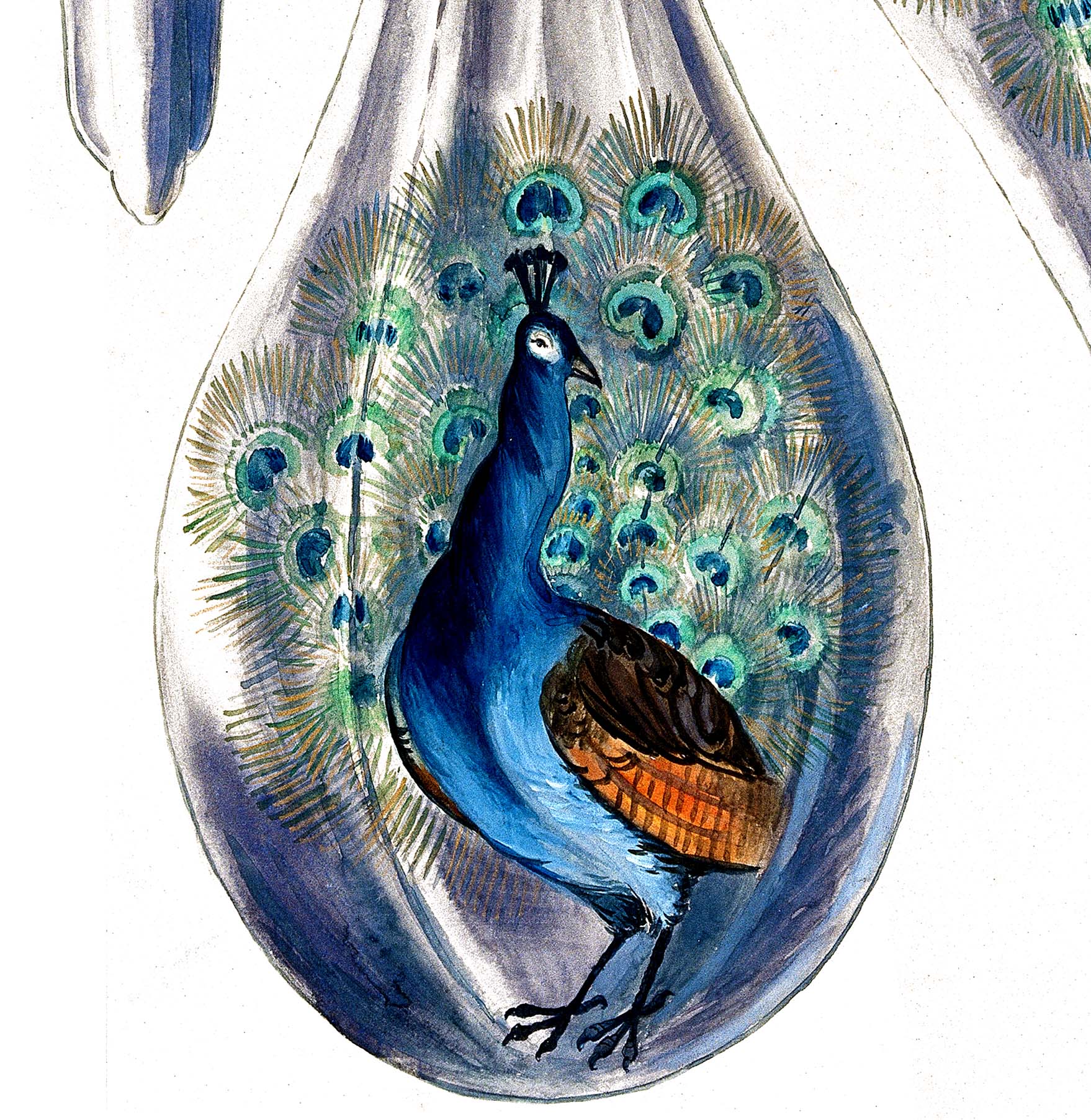
Click to download the poster
Conference Themes
![]()
Alchemical Secrets and Remedies
![]()
Rupescissa and the Spitirual Franciscans
![]()
Experimental Alchemy
![]()
Alchemical Networks of Knowledge Exchange
![]()
Textual and Lexical Analysis of Alchemical Practices
![]()
Alchemical Databases
Programme
Click to Download the Programme
Abstracts
Download the conference abstracts here.
Comèl Grant
Funding to partake in the event is available via the competitive Comèl Grant. Applicants are requested to submit their proposal prior to applying for the grant.
This conference explores the use of alchemical remedies and processes in the cultural and intellectual context of pre-modern Europe, focusing especially on medical alchemy, whose ultimate goal was to create the elixir, a universal remedy capable of curing all diseases. It delves into the dynamics of knowledge exchange and interaction between the Occitan-Catalan region and the rest of Europe, promoted by the dissemination of Rupescissa’s works and ideas. One of the highlights of the conference will be the presentation of the Pseudo-Llullian and Pseudo-Arnaldian Alchemical Corpus, a digital tool now available to scholars working on alchemy in the late Middle Ages.
Conference Description
The rich cultural and intellectual exchange between the Christian, Muslim and Jewish communities in the Occitan-Catalan region created a unique environment that greatly influenced the development of medical alchemy. At the heart of the alchemical school that flourished in this region were the so-called Fraticelli, or ‘Spiritual Franciscans’, who opposed changes to the rule of St Francis of Assisi with regards to poverty, the most prominent of whom was John of Rupescissa (1320-1366), along with figures associated with the movement such as Pseudo-Llull and Pseudo-Arnau (first half of the 14th century), as well as Francesc Eiximenis (1330-1409). Recent contributions to Rupescissa’s Liber lucis by Lawrence Principe and others have provided new insights into processes such as the extraction of plant and mineral essences, which had an impact centuries later, influencing, among others, the same Paracelsus (1493-1541).
Conference Articulation
The conference spans two days and includes three main sessions:
1. Circulation of Alchemical Knowledge
The session looks at the uses and applications of alchemical knowledge across Europe, especially the literature on secrets, remedies (elixir, stones, waters, theriac), and ideas (radical moisture and rejuvenation). Highlights of this session include the presentation of a Catalan digital corpus focusing on the development of alchemy and medicine during the Middle Ages and the Early Modern period (Occitan, Iberian, and Italic areas).
2. Cross-Cultural Dynamics
This session explores the spreading, influence, and hybridisation of alchemical knowledge with other disciplines, such as medicine, botany, natural history, theology, etc.
3. Experimental Recreation of Historical Practices and Remedies
Inspired by recent works by William R. Newman and others, which have demonstrated the viability of reproducing historical alchemical practices based on printed and manuscript sources, this session is devoted to exploring projects or research methods that look at alchemical practices from an experimental viewpoint.
Conference Proceedings
The best papers will be collected and submitted for publication in the series Palgrave Studies in Medieval and Early Modern Medicine (PSMEMM).
Registration Process
While open to anyone interested, participation in the conference is subject to a fee. Participants interested in giving a paper are encouraged to reach out to the organisers with their contribution’s title and abstract (max 300 words) before applying.
The deadline for submitting a paper is 15th August 2024. Successful applicants will be notified in Early September and invited to finalise the application process. Successful applicants will be notified in Early September and invited to finalise the application process.
A limited number of free slots for MA and PhD students are available via the competitive Comèl Grant. Applicants are requested to submit their proposal prior to applying for the grant. The deadline for grant applications falls on 10th September 2024 (5 pm CEST). Interested people are invited to send an inquiry to the centre at info@csmbr.fondazionecomel.org, by motivating their interest or by attaching a recent CV.
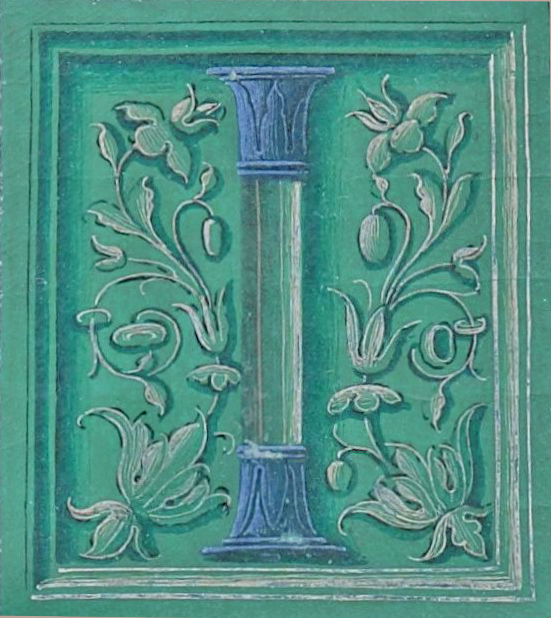
Dates: 22-23 October
Venue: Domus Comeliana
Format: Hybrid
Submission Deadline: 6 September
Comèl Grant Deadline: 10 September
Registration Deadlines
Early Bird: 10th September
Regular in presence: 12th October
Regular online: 20th October
Queries
Registration Fees
Early Bird
€ 35 = Online
€ 80 = In Presence (lim. availability)
Regular
€ 50 = Online
€ 120 = In Presence
Check Out
Credits
Scientific Direction:
Fabrizio Bigotti
Organising Committee:
Lluís Cifuentes, Sebastià Giralt Soler, Tilen Glavina, Jaume Mensa Valls
General Coordination:
Tomaso M. Pedrotti Dell’Acqua
Co-Sponsored by:

